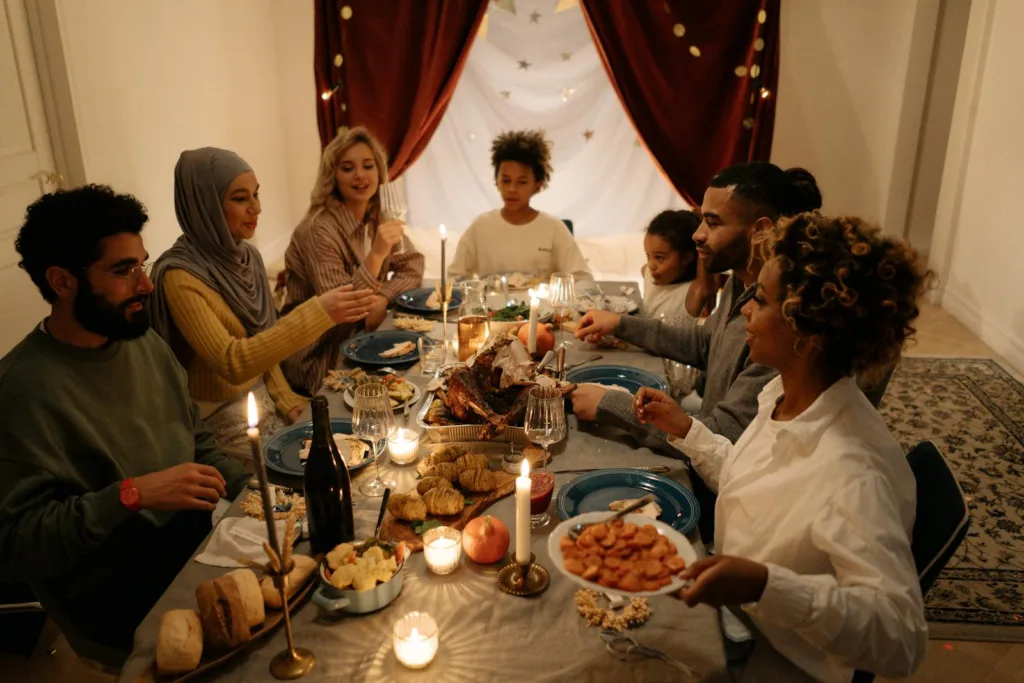Courtship and dating, have you ever wondered which one holds the secret to a lasting marriage? They’re two different ways people approach finding their life partners. But which one is more likely to lead to a happy marriage?
The journey to lifelong partnership is a complex blend of feelings, societal expectations, and personal goals. As you make your way through this intricate process, it’s vital to understand the unique features of both courtship and dating and their impact on the potential for a lasting union.
So, what sets the stage for a strong marriage, and what considerations should influence your choice? Read on for deeper understanding and to help you decide wisely for your future.
Key Takeaways
- Courtship is a formal agreement with the goal of marriage, while dating does not necessarily have marriage as the end goal.
- Courtship is more serious and traditional, involving input and advice from family or spiritual leaders, while dating is more flexible and does not require family approval.
- Emotional openness and abstinence are often expected in courtship, while dating can vary in terms of emotional openness and sexual activity.
- Courtships typically last about 1 year before engagement, while the length of dating relationships can vary greatly. Seeking marital advice is more common in courtship, but dating couples may also seek counseling for major issues.
Definition and Purpose of Courtship and Dating
Understanding the distinctions between courtship and dating is essential for recognizing their unique definitions and roles.
Courtship is a serious process of getting to know a potential life partner with the intention of marriage. It is often more structured and conservative, commonly including the opinions and guidance of family members or religious mentors.
On the other hand, dating is a more relaxed method of spending time with someone without the pressure of long-term commitment. It offers more freedom and informality compared to courtship.
The choice between courtship and dating depends on what you prefer and what you believe. Courtship might suit you if you’re interested in a committed, old-fashioned approach. But if you prefer a more easy-going and non-committal relationship, dating might be preferable.
Ultimately, the choice should reflect what’s best for you and the person you’re getting to know.
Emotional Openness and Abstinence
In the journey of getting to know someone, emotional openness, and abstinence can shape the experience differently in courtship and dating.
- When people court, they often form deep emotional connections quickly, sometimes within a few months. In casual dating, the depth of emotional connection can widely vary, as individuals set their own pace based on what they’re comfortable with and what aligns with their values.
- Choosing abstinence until marriage is common in courtship, frequently due to religious beliefs. In dating scenarios, decisions about abstinence are more individualistic, hinging on personal beliefs and comfort with physical intimacy.
- In courtship, a couple usually pays careful attention to each other’s values and boundaries regarding physical closeness. This respect helps build a stronger emotional bond.
- When dating, discussing physical intimacy openly is key to understanding and respecting each other’s limits. This clear communication can build trust and connect people emotionally.
Communication and Trust
To foster trust within your relationship, it’s essential to have a straightforward and truthful dialogue. It’s vital to freely share your thoughts and emotions and listen to your partner with an open mind. Discuss your hopes, concerns, and aspirations to strengthen your bond.
Be open about your history and any issues that may worry you. Trust grows from consistent, clear exchanges. Fulfilling your promises and being dependable demonstrates your reliability. When disagreements occur, tackle them with respect and collaborate on finding resolutions.
Trust is a critical element of a lasting bond, and it flourishes when both partners feel they’re heard, understood, and appreciated. A relationship with open communication paves the way for greater trust and closeness.
Decision-Making Process During Courtship and Dating
When deciding how to pursue a romantic relationship, weigh your principles and the type of partnership you envision for the future. If you hold traditional values, appreciate family involvement, and seek a deliberate path toward finding a lifelong mate, courtship may align with your perspective.
Conversely, if personal freedom and a relaxed method of getting to know someone appeals to you, dating could be more appropriate. Consider what you genuinely want and need from a partner. Ponder your readiness for the responsibility and dedication that courtship entails, or whether you’d rather enjoy the variety and personal discovery that comes with dating.
Making such a choice should involve thoughtful self-reflection and a candid assessment of your wishes and preparedness for a serious relationship.
Length of Relationship For Courtship and Dating
On average, a courtship might last about one year before a couple decides to get engaged. This period allows both individuals to get to know one another, grasp each other’s principles, and picture a future together. It’s a time to establish a durable foundation for a marriage that will last.
In contrast, the duration of dating relationships can vary greatly. Some may continue for several years, while others might be brief, lasting only a few months. How long you date or court someone depends on your personal needs and how satisfied you both feel in the relationship.
It’s all about choosing the right moment and ensuring you’re both prepared for what’s next.
Seeking Marital Advice
As you progress from evaluating the duration of your relationship to seeking marriage guidance, it’s helpful to note the distinct methods between courtship and dating.
- Those in courtship often turn to religious leaders or experienced family members for marriage advice, sometimes even before deciding to get engaged.
- In contrast, couples who are dating mightn’t commonly seek marriage guidance, except for those who are deeply religious.
- Still, dating partners who face significant challenges may find it beneficial to consult with a couples counselor.
- Cultural backgrounds and individual preferences can greatly influence how and when couples seek advice regarding their marriage.
Understanding the subtle differences between seeking marriage advice in courtship versus dating can be vital as you proceed through this significant stage of your relationship.
Family Involvement
When you bring your family into your relationship, it’s wise to listen to what they’ve to say, especially when you’re following a traditional dating approach.
Input from your family can offer wise counsel and support as you deal with the challenges of a committed relationship.
Your relatives might see things from a different angle, providing new ideas that could help you and your partner make smarter choices.
Allowing your family to get to know your partner can also create a stronger connection between them, building a foundation of common beliefs and understanding.
Still, it’s important to maintain your independence and make sure that your family’s role doesn’t overwhelm your personal opinions and wishes.
Role of Religion In Courtship and Dating
Religion significantly influences the customs and expectations surrounding courtship and dating. Here’s how religion can shape these romantic interactions:
- Religious Beliefs: Your faith may lead you to prefer either courtship or dating as the method to find a life partner.
- Moral Standards: Religious teachings often provide guidelines for physical closeness and the expected degree of emotional sharing in a relationship.
- Family Involvement: Many religious customs stress the importance of family or spiritual mentors in overseeing and endorsing romantic relationships.
- Marital Guidance: It’s not uncommon in faith communities to seek advice from religious figures or experienced family members, which can affect how individuals approach courtship or dating.
Your faith can have a deep influence on how you pursue courtship and dating, ultimately guiding you toward a future partnership.
Expectation of Monogamy
Clear communication and mutual understanding of boundaries and values are key when it comes to monogamy in a relationship. Whether you’re in the early stages or more deeply involved, it’s vital to talk about and agree on the degree of exclusivity you both want.
In a courtship, monogamy is generally a given from the beginning. On the other hand, when you’re just dating, making sure everyone’s expectations are out in the open early can prevent misunderstandings. Without this, one person might think it’s fine to see other people, which could lead to issues.
The commitment to monogamy in your relationship should reflect what you both believe in and how you interact with each other. So, have a straightforward talk to make sure your relationship goals align.90
Conclusion
So, whether you’re pursuing courtship or dating, remember that the journey towards marriage is unique for everyone.
It’s all about finding what works best for you and your partner and aligning with your values and goals.
Keep communication open, seek advice when needed, and trust your instincts.
Ultimately, the path to a successful marriage is about building a strong foundation of love, respect, and understanding.
Good luck on your journey towards a lifelong partnership!
Frequently Asked Questions
What Are Some Common Cultural or Religious Practices That May Influence the Choice Between Courtship and Dating?
Choosing between courtship and dating can be influenced by cultural or religious customs.
In courtship, family opinions and religious advice often have a significant influence, while dating may allow for more personal freedom.
The level of emotional sharing and the practice of sexual abstinence also differ according to cultural and religious beliefs.
Cultural and religious traditions may also affect how long a relationship lasts and the pursuit of marriage advice.
Expectations of being with one partner are often shaped by these cultural and religious backgrounds.
How Can Couples Ensure Effective Communication and Build Trust in Their Relationship, Regardless of Whether They Choose Courtship or Dating?
To have clear communication and a strong sense of trust in your relationship, it’s vital to have regular, truthful discussions. Allocate time to truly hear and comprehend what your partner is saying.
Share your thoughts and feelings without holding back, and support your partner in doing the same. Be present, show understanding, and acknowledge each other’s feelings.
Building trust is a process that unfolds over time, so practice patience and keep your behavior reliable. Trust is a fundamental part of any relationship, no matter the approach you take.
What Role Do Individual Beliefs and Values Play in the Decision-Making Process When Choosing Between Courtship and Dating?
Your personal beliefs and values play a significant role in choosing between courtship and dating. They determine how you handle emotional connections and physical boundaries, and when to seek guidance from others.
Your principles set the expectations for exclusivity and the potential duration of your relationship. In essence, your beliefs and values guide you towards a style of relationship that resonates with your desires and moral standards.
How Do Societal Expectations and Gender Roles Impact the Dynamics of Courtship and Dating Relationships?
Social norms and traditional gender roles significantly shape the practice of courtship and the nature of dating relationships. These cultural elements guide how individuals show love, communicate, and make choices together.
Often, they influence who initiates dates or romantic acts and how each person is viewed by others. Being aware of and working through these norms is vital for a satisfying and balanced relationship.





